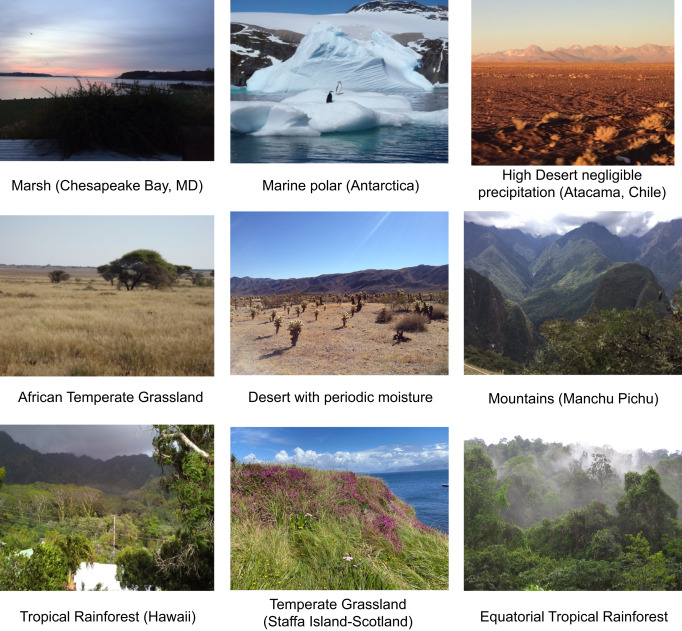Habitat conversion and resource utilization have been identified in the One Health approach as drivers of poor ecosystem health that can lead to disease spillover events supporting SDG3.
This paper synthesized current knowledge of mesoscale eddies and their impacts on the marine ecosystem across the North Pacific and its marginal Seas, across the CCS region , the northeastern North Pacific and the Bering Sea, the western boundary of the North Pacific and marginal seas, and the extratropical open North Pacific. How climate change will modify mesoscale processes remains a key open challenge.
Elsevier,
Translational Surgery
Handbook for Designing and Conducting Clinical and Translational Research
2023, Pages 591-597
The extensive history of abuse and ongoing mistreatment of Black Americans continues to foster apprehension and distrust of healthcare providers. This has resulted in substantial barriers for modern healthcare to appropriately address the needs of Black patients. These concerns have been visibly manifested during the COVID-19 pandemic. This article supports WHO SDG 3 Good Health and Wellbeing and SDG10 Reduced Inequalities.
Elsevier,
The Thinking Healthcare System
Artificial Intelligence and Human Equity
2023, Pages 99-129
Highlights the 21st century's fundamental “global health” reformulation of PubHealth and anticolonial resistance (to a perceived cultural imperialism of the West including in PubHealth) supporting SDG 3.
This Article supports SDGs 3 and 6 by showing that the integration of a health education package for for the promotion of correct hygiene and sanitation practices into the school curriculum is an affordable and scalable approach to respond to the burden of soil-transmitted helminth infection among schoolchildren in the Philippines.
Elsevier,
Emerging Practices in Telehealth
Best Practices in a Rapidly Changing Field
2023, Pages 163-182
The need and opportunities for global health strategies to leverage the power of digital health technology to improve healthcare outcomes are growing. Telehealth and other digital health products and services are becoming increasingly important in this effort, and methodical strategies should be used to evaluate the need, application, integration, maintenance, and scaling of such solutions. With the correct attention upon these areas, digital health can serve as a catalyst to improve healthcare outcomes and reduce disparities across the world, supporting SDG3.
Elsevier,
Clinical Decision Support and Beyond (Third Edition)
Progress and Opportunities in Knowledge-Enhanced Health and Healthcare
2023, Pages 707-714
Clinical Decision support provides an effective tool to minimize many of the drivers of health disparities in healthcare. There is promising evidence that these tools can serve to promote equity across the healthcare spectrum supporting SDG 3. However, future iterations require a focus on equity from the start and inclusive and sustainable development, implementation, and evaluation practices.
Emerging evidence from the western literature suggests an increasing focus on applying nature-based interventions for mental health improvements. However, in Indigenous communities, caring for country has always been central to the Indigenous way of life. Knowing that nature-based interventions effectively improve mental health outcomes, this review collated evidence on the application of caring for country in improving social and emotional well-being (SEWB) of Indigenous peoples in Australia and New Zealand.
This content aligns with Goal 3: Good Health and Wellbeing as well as Goal 10: Reduced Inequalities by emphasizing the importance of technology assessment capability in shaping health policy and priorities to improve health outcomes and quality of life. By promoting strong professional education and practice standards, accreditation processes, and educational programs for public health, the content supports efforts to enhance the quality of healthcare services and public health interventions. Additionally, it aligns with Goal 10: Reduced Inequalities by recognizing the need to address disparities and ensure equitable access to evidence-based methods of prevention, diagnosis, and therapy. By advocating for continuous revision of legal frameworks and ethical standards in response to societal changes and emerging health challenges, the content underscores the importance of promoting fairness and equity in public health practices and policies. Moreover, it highlights the ethical imperative of public health interventions to protect populations from illness and premature death, thereby contributing to efforts aimed at reducing inequalities in health outcomes and promoting the well-being of all members of society.
This content aligns with Goal 3: Good Health and Wellbeing as well as Goal 10: Reduced Inequalities by recognizing the importance of addressing health needs across various life stages within the family unit, emphasizing the significance of equal rights and access to healthcare for women, children, and men. It underscores the role of family and community support in promoting health through factors such as nutrition, education, and social and mental well-being, contributing to the overall health and well-being of individuals. Additionally, the discussion of the impact of aging on both individuals and families highlights the need for comprehensive health and social support systems to address the challenges associated with aging, thereby promoting good health and well-being for all members of society. Furthermore, acknowledges the influence of social inequities, poverty, and other factors such as displacement and mass trauma on family health. By advocating for the reduction of poverty and the provision of social support systems, the content supports efforts to reduce inequalities in access to healthcare and promote equitable health outcomes for all members of society.


